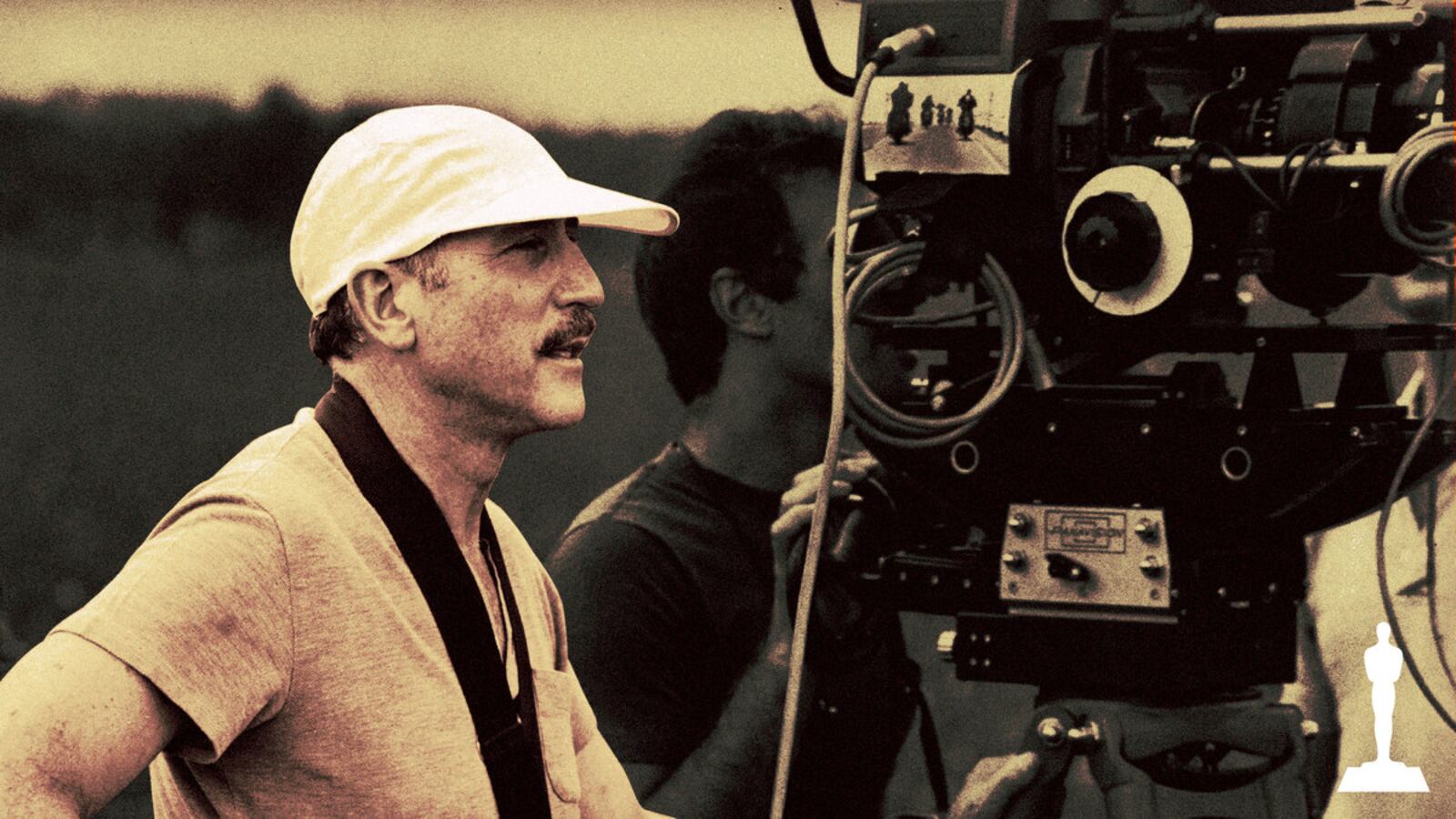The Academy Awards get things right about as often as Halley’s Comet passes through our solar system. Thus, it’s amazing that, when confronted with the single most beautiful work ever committed to celluloid, it didn’t whiff when it came time to hand out its Best Cinematography prize.
I’m speaking, of course, about Days of Heaven, Terrence Malick’s breathtaking 1978 sophomore feature about a love triangle that develops on a Texas panhandle farm between a manual laborer (Richard Gere) who’s fled Chicago in the aftermath of an accidental murder, his girlfriend (Brooke Adams), and the estate’s ailing owner (Sam Shepard). Pitted against an impressive roster of contenders (most notably, Vilmos Zsigmond for The Deer Hunter), it was not only the clear choice, but arguably the most deserving win in the telecast’s history, given that even today, there’s no motion picture more lovely.
Days of Heaven’s Oscar went to Néstor Almendros, the film’s original and credited cinematographer, although he’s not the only person responsible for its splendor. Forced to leave before production wrapped (because of its extended, costly duration), Almendros ceded camera-operating duties to Haskell Wexler, who followed Almendros’ established template and instructions. Wexler long maintained that his own work comprised more than half of what’s seen in the final cut.
Nonetheless, it was Almendros who received the lion’s share of the credit, largely because of his role in shaping the feel, tone and overarching style of its visuals—a reasonable outcome, even if, during his acceptance speech, Almendros claimed that his images were Malick’s, and that it was the director who truly deserved to be feted for its accomplishment.
Assigning recognition for Days of Heaven’s cinematography is, as with most cinematic awards, somewhat tricky and ultimately beside the point; what’s important is that the Academy wasn’t blind to a classic in its midst. To an even greater extent than his debut, 1973’s Badlands, Malick’s film is a compositional triumph, much of it shot in magic-hour twilight that lends it an ethereal glow.
At the same time, however, its visions of the Texas countryside—full of tall, swaying grass fields, wide-open plains that stretch to the expansive horizon, and small figures silhouetted against the imposing landscape— have a tangible, earthy quality. The milieu presented by Days of Heaven is delicate and otherworldly, and yet also concrete and well-worn—a dichotomy that speaks directly to its biblically-oriented tale of a heaven transformed into a hell.
Malick’s habit of turning his gaze away from human protagonists and action and toward subjects in nature—say, a herd of buffalo or birds taking flight—amplifies Days of Heaven’s lyricism, aided by an editorial structure (courtesy of Billy Weber) that melds these snapshots together in hypnotic fashion. Assembling the film took Malick two years and reduced its central performances to a series of minimal-dialogue glances, gestures, and expressions. Rather than thinning out the film, however, that tack enhances its exquisiteness, as do its impossibly good-looking leads Gere, Shepard, and Adams, who’ve never again been as alluring and haunting.
Visually speaking, Days of Heaven was head and shoulders above the pack in its day—its only true peer remains Stanley Kubrick’s 1975 masterpiece Barry Lyndon—and its majesty is even more awe-inspiring today. Despite the benefits they afford filmmakers, modern digital tools have robbed the cinema of the sort of rich, textured, incandescent brilliance that marks this sole collaboration between Malick and Almendros (who’d go on to have an esteemed career that also included Sophie’s Choice, Pauline at the Beach and three Francois Truffaut features). There’s a lifetime’s worth of wondrous and heartbreaking passion, terror, tragedy, and euphoria in its frames, making it a sensory experience like few others.
The Oscars’ track record may be shoddy, but at its 51st gala on April 9, 1979, they didn’t whiff when it mattered.
Read more of our picks for “My Favorite Oscars Win”
Three 6 Mafia winning Best Original Song
Parasite winning Best Picture
Marisa Tomei winning Best Supporting Actress
Read more of our picks for “The Oscars Moment I'll Never Forget”
The emotional 2009 acting tributes
John Travolta's 'Adele Dazeem' gaffe
Anne Hathaway and James Franco’s hosting disaster
Keep obsessing! Sign up for the Daily Beast’s Obsessed newsletter and follow us on Facebook, Twitter, Instagram and TikTok.






